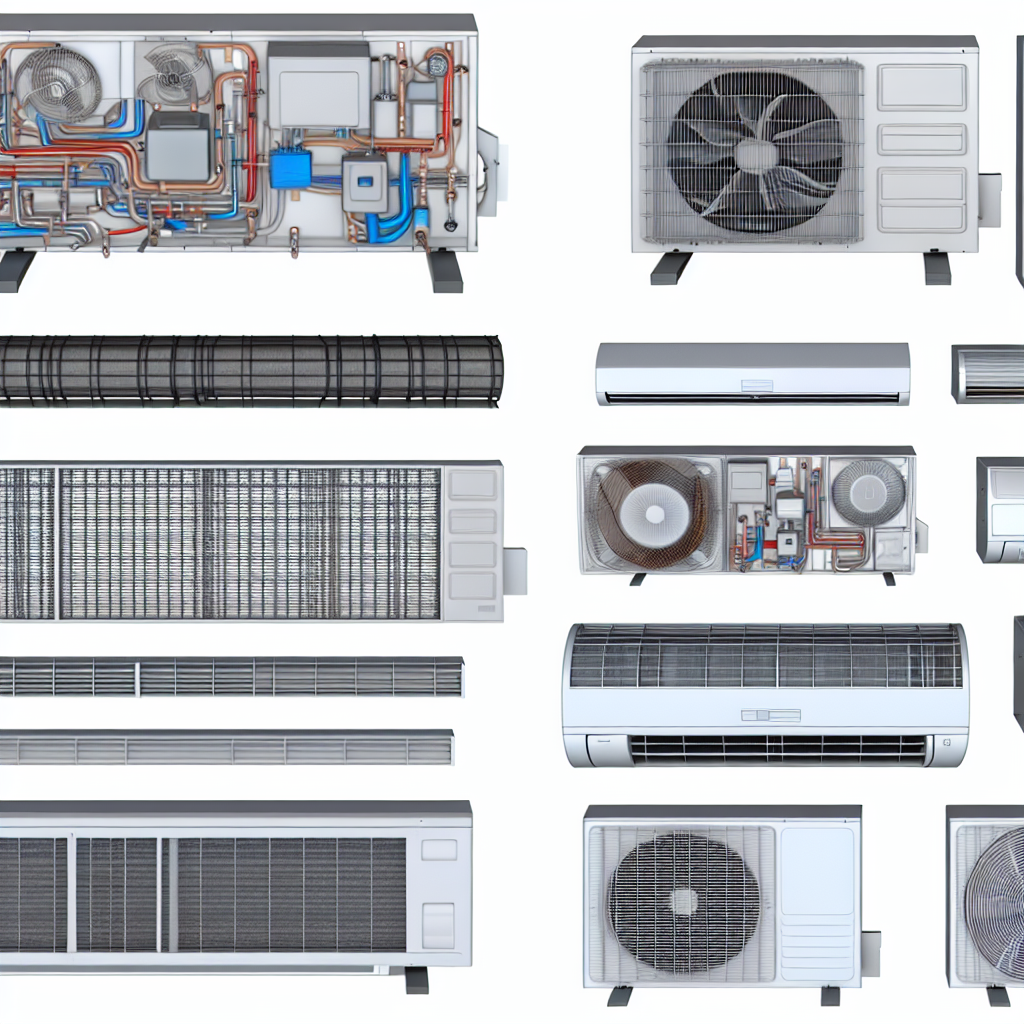Published: Jan 16, 2025

When it comes to staying cool in the scorching summer heat, air conditioning is a must-have for many households. However, choosing the right air conditioning system can be a daunting task with the myriad of options available in the market. Understanding the different types of air conditioning systems can help you make an informed decision based on your specific needs and budget.
Central air conditioning systems are the most common type of cooling system found in homes. These systems use a network of ducts to distribute cool air throughout your home, ensuring consistent temperature levels in every room. Central air systems are efficient and provide reliable cooling, making them a popular choice for many homeowners.
Ductless mini-split systems are a great alternative for homes that do not have existing ductwork. These systems consist of an outdoor unit connected to one or more indoor units, allowing you to control the temperature in individual rooms or zones. Ductless systems are highly efficient and offer flexibility in zoning, making them ideal for homes with specific cooling needs.
Window air conditioners are a budget-friendly option for cooling individual rooms. These units are installed in a window or through a wall and are designed to cool a specific area without requiring any major installation work. While window AC units are easy to install and cost-effective, they may not be the most efficient option for cooling larger spaces.
Portable air conditioners are versatile units that can be moved from room to room as needed. These systems are easy to install and do not require any permanent installation, making them ideal for renters or for cooling specific areas in your home. However, portable air conditioners may not be as efficient as other types of cooling systems and may produce more noise.
Evaporative coolers, also known as swamp coolers, are a cost-effective and energy-efficient cooling option for dry climates. These systems work by using water to cool and humidify the air, providing a natural and refreshing cooling sensation. While evaporative coolers are effective in dry regions, they may not be suitable for areas with high humidity levels.
Hybrid air conditioning systems combine the efficiency of a heat pump with the reliability of a furnace to provide both cooling and heating capabilities. These systems switch between the heat pump and furnace based on the outside temperature, optimizing energy usage and enhancing indoor comfort. While hybrid systems offer year-round comfort, they may require a larger upfront investment.
Understanding the different types of air conditioning systems can help you choose the right cooling solution for your home. Consider factors such as your budget, the size of your home, and your specific cooling needs when selecting an air conditioning system. Consult with a professional HVAC technician to determine the best option for your home and ensure proper installation and maintenance for optimal performance.
By understanding the various types of air conditioning systems available, you can make an informed decision that suits your specific cooling needs and budget. Choose the right system to stay comfortable and cool during the hot summer months.
**

Our expert technicians are ready to assist you 24/7!
Contact Us Today!Read our latest articles for helpful information about heating, cooling, and air quality.
Regular HVAC maintenance is essential for improving energy efficiency, extending the lifespan of your system, enhancing...
Read MoreImplement these 10 tips to enhance the air quality in your home, promoting a healthier living environment for you and y...
Read MoreRegular seasonal HVAC maintenance is essential for maximizing system efficiency, ensuring indoor air quality, preventing...
Read MoreSmart thermostats offer energy savings, convenience, learning capabilities, and integration with smart home systems, mak...
Read More